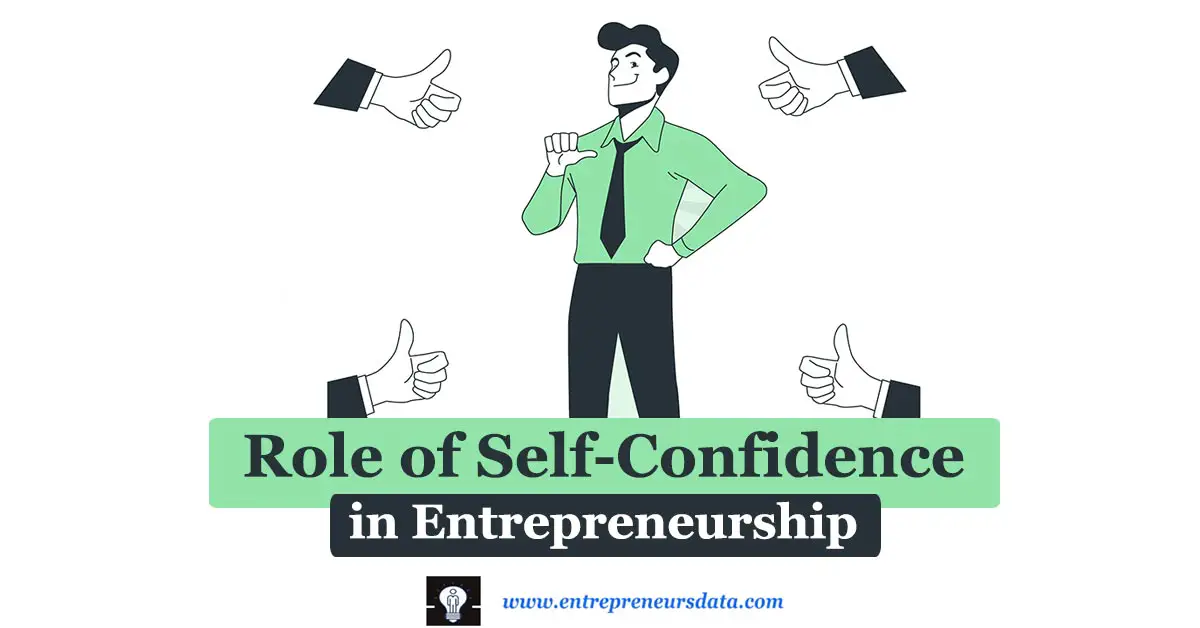Identifying the Roadblocks: Common Obstacles Faced by Entrepreneurs
Entrepreneurs often face a multitude of challenges that can hinder their progress and success. Some of the most common obstacles include securing funding, developing effective marketing strategies, and managing a team. These challenges can be daunting, but they are not insurmountable. Many successful entrepreneurs have overcome these obstacles and gone on to achieve great success.
For example, Airbnb’s founders, Brian Chesky and Joe Gebbia, faced significant funding challenges in the early days of their company. Despite being rejected by numerous investors, they persevered and eventually secured the funding they needed to grow their business. Today, Airbnb is a global phenomenon, with millions of users and a valuation of over $50 billion.
Similarly, entrepreneur and author, Gary Vaynerchuk, has spoken publicly about the challenges he faced in building his marketing agency, VaynerMedia. Despite facing numerous setbacks and rejections, Vaynerchuk persevered and eventually built a successful business that has helped countless entrepreneurs and businesses achieve their marketing goals.
These examples illustrate that overcoming entrepreneurial obstacles requires a combination of hard work, determination, and creativity. By understanding the common challenges that entrepreneurs face, and learning from the experiences of others, entrepreneurs can better prepare themselves to overcome the obstacles that lie ahead.
Some of the other common obstacles faced by entrepreneurs include managing cash flow, dealing with competition, and staying adaptable in a rapidly changing market. By developing strategies to overcome these challenges, entrepreneurs can build a strong foundation for their business and set themselves up for long-term success.
How to Build a Strong Support Network: The Power of Mentorship and Community
Building a strong support network is crucial for overcoming entrepreneurial obstacles. A support network can provide valuable guidance, resources, and encouragement during difficult times, helping entrepreneurs to stay motivated and focused on their goals. One of the most effective ways to build a support network is through mentorship.
A mentor can offer valuable insights and advice, helping entrepreneurs to navigate the challenges of building a business. A good mentor can also provide access to a network of contacts and connections, which can be invaluable in securing funding, finding new customers, and building partnerships. Many successful entrepreneurs have attributed their success to the guidance and support of a mentor.
In addition to mentorship, building a community of peers and industry experts can also be a powerful way to build a support network. Joining industry groups, attending conferences and networking events, and participating in online forums can all be effective ways to connect with others who are facing similar challenges. By building relationships with others in the industry, entrepreneurs can gain access to valuable advice, resources, and support.
For example, the startup accelerator, Y Combinator, provides a supportive community of entrepreneurs, mentors, and industry experts. The program offers access to funding, mentorship, and networking opportunities, helping entrepreneurs to build a strong support network and overcome the challenges of building a business.
Another example is the Entrepreneurs’ Organization (EO), a global network of entrepreneurs who provide support, guidance, and resources to one another. EO members have access to a network of peers, mentors, and industry experts, as well as training and education programs, helping them to build a strong support network and overcome entrepreneurial obstacles.
By building a strong support network, entrepreneurs can gain the guidance, resources, and encouragement they need to overcome the challenges of building a business. Whether through mentorship, community, or a combination of both, a support network can be a powerful tool in helping entrepreneurs to achieve their goals and overcome entrepreneurial obstacles.
Developing a Problem-Solving Mindset: Strategies for Overcoming Obstacles
Overcoming entrepreneurial obstacles requires a problem-solving mindset. Entrepreneurs who can break down complex problems into manageable tasks, seek feedback, and learn from failure are better equipped to navigate the challenges of building a business. One effective strategy for developing a problem-solving mindset is to adopt a design thinking approach.
Design thinking involves empathizing with customers, ideating solutions, prototyping, and testing. This approach encourages entrepreneurs to think creatively and develop innovative solutions to complex problems. By adopting a design thinking approach, entrepreneurs can develop a problem-solving mindset that enables them to overcome obstacles and achieve their goals.
Another strategy for developing a problem-solving mindset is to seek feedback from others. Entrepreneurs who are open to feedback and willing to learn from others are better equipped to navigate the challenges of building a business. Seeking feedback from mentors, peers, and customers can provide valuable insights and help entrepreneurs to identify and overcome obstacles.
Embracing failure as a learning opportunity is also an important strategy for developing a problem-solving mindset. Entrepreneurs who view failure as an opportunity to learn and grow are better equipped to navigate the challenges of building a business. By embracing failure, entrepreneurs can develop a growth mindset that enables them to overcome obstacles and achieve their goals.
For example, the entrepreneur and author, Eric Ries, has written extensively on the importance of embracing failure as a learning opportunity. Ries argues that entrepreneurs who are willing to take risks and experiment with new ideas are more likely to succeed in the long run. By embracing failure, entrepreneurs can develop a problem-solving mindset that enables them to overcome obstacles and achieve their goals.
By developing a problem-solving mindset, entrepreneurs can overcome the obstacles that stand in their way and achieve their goals. Whether through design thinking, seeking feedback, or embracing failure, entrepreneurs who can develop a problem-solving mindset are better equipped to navigate the challenges of building a business and overcome entrepreneurial obstacles.
Cultivating Resilience: The Role of Self-Care in Entrepreneurial Success
Cultivating resilience is crucial for overcoming entrepreneurial obstacles. Entrepreneurs who prioritize their physical and mental well-being are better equipped to handle the stress and pressure of building a business. Self-care is essential for maintaining resilience and motivation, and it involves taking care of one’s physical, emotional, and mental health.
One of the most effective ways to cultivate resilience is to prioritize sleep and exercise. Getting enough sleep and engaging in regular physical activity can help to reduce stress and improve mood. Additionally, taking breaks and practicing mindfulness can help to reduce burnout and improve focus.
Entrepreneurs can also cultivate resilience by building a strong support network. Surrounding oneself with positive and supportive people can help to reduce stress and improve motivation. Additionally, seeking out mentors and coaches can provide valuable guidance and support during difficult times.
Another important aspect of self-care is nutrition. Eating a healthy and balanced diet can help to improve energy levels and reduce stress. Additionally, staying hydrated and avoiding excessive caffeine and sugar can help to improve focus and productivity.
For example, the entrepreneur and author, Arianna Huffington, has written extensively on the importance of self-care in entrepreneurial success. Huffington argues that prioritizing sleep, exercise, and nutrition is essential for maintaining resilience and motivation. By prioritizing self-care, entrepreneurs can improve their overall well-being and increase their chances of success.
By cultivating resilience through self-care, entrepreneurs can better handle the challenges of building a business and overcome entrepreneurial obstacles. By prioritizing their physical and mental well-being, entrepreneurs can improve their motivation, focus, and productivity, and achieve their goals.
Learning from Failure: How to Turn Setbacks into Opportunities
Failure is an inevitable part of the entrepreneurial journey. However, it’s not the failure itself that defines an entrepreneur, but rather how they respond to it. Learning from failure is crucial for overcoming entrepreneurial obstacles and achieving success. By reflecting on failures, entrepreneurs can identify areas for improvement, develop new strategies, and adapt to changing circumstances.
One of the most important things entrepreneurs can do when faced with failure is to take a step back and reflect on what went wrong. This involves analyzing the situation, identifying the root cause of the failure, and determining what could have been done differently. By reflecting on failures, entrepreneurs can gain valuable insights and develop new strategies for overcoming similar challenges in the future.
Another key aspect of learning from failure is to focus on the lessons learned rather than the failure itself. By doing so, entrepreneurs can turn setbacks into opportunities for growth and development. This involves adopting a growth mindset, being open to feedback, and being willing to adapt and change.
For example, the entrepreneur and author, Richard Branson, has spoken publicly about the importance of learning from failure. Branson has said that he has learned more from his failures than from his successes, and that he believes failure is an essential part of the entrepreneurial journey. By embracing failure as a learning opportunity, entrepreneurs can develop the resilience and adaptability needed to overcome entrepreneurial obstacles.
Additionally, entrepreneurs can learn from the failures of others. By studying the failures of successful entrepreneurs, entrepreneurs can gain valuable insights and develop new strategies for overcoming similar challenges. This involves being open to feedback, seeking out mentors and coaches, and being willing to learn from others.
By learning from failure, entrepreneurs can turn setbacks into opportunities for growth and development. By reflecting on failures, focusing on the lessons learned, and being open to feedback, entrepreneurs can develop the resilience and adaptability needed to overcome entrepreneurial obstacles and achieve success.
Staying Adaptable: The Importance of Pivoting in Response to Challenges
Staying adaptable is crucial for overcoming entrepreneurial obstacles. Entrepreneurs who are able to pivot in response to changing circumstances are more likely to succeed in the long run. Pivoting involves being willing to adjust one’s business strategy or model in response to new information or changing market conditions.
One of the most important things entrepreneurs can do to stay adaptable is to stay open to feedback and new ideas. This involves being willing to listen to others, consider different perspectives, and be open to changing one’s approach. By staying open to feedback and new ideas, entrepreneurs can identify areas for improvement and make adjustments to their business strategy or model.
Another key aspect of staying adaptable is to be willing to take calculated risks. This involves being willing to try new things, experiment with different approaches, and take bold action. By taking calculated risks, entrepreneurs can stay ahead of the curve and adapt to changing market conditions.
For example, the entrepreneur and author, Steve Blank, has spoken publicly about the importance of pivoting in response to changing circumstances. Blank has said that entrepreneurs who are able to pivot quickly and effectively are more likely to succeed in the long run. By staying adaptable and being willing to pivot, entrepreneurs can overcome entrepreneurial obstacles and achieve success.
Additionally, entrepreneurs can learn from the experiences of others who have successfully pivoted their businesses. By studying the strategies and approaches of successful entrepreneurs, entrepreneurs can gain valuable insights and develop new strategies for overcoming entrepreneurial obstacles.
By staying adaptable and being willing to pivot, entrepreneurs can overcome the challenges of building a business and achieve success. By staying open to feedback and new ideas, taking calculated risks, and being willing to adjust one’s business strategy or model, entrepreneurs can stay ahead of the curve and overcome entrepreneurial obstacles.
Conclusion: Overcoming Entrepreneurial Obstacles and Achieving Success
Overcoming entrepreneurial obstacles requires a combination of resilience, adaptability, and a growth mindset. By developing a growth mindset, entrepreneurs can tackle challenges head-on and stay focused on their goals. By building a strong support network, entrepreneurs can gain valuable guidance, resources, and encouragement during difficult times.
Additionally, entrepreneurs can develop a problem-solving mindset by breaking down complex problems into manageable tasks, seeking feedback, and embracing failure as a learning opportunity. By cultivating resilience through self-care, entrepreneurs can maintain their motivation and stay committed to their goals.
Learning from failure is also crucial for overcoming entrepreneurial obstacles. By reflecting on failures, entrepreneurs can identify areas for improvement and develop new strategies for success. By staying adaptable and willing to pivot, entrepreneurs can respond to changing circumstances and stay ahead of the curve.
In conclusion, overcoming entrepreneurial obstacles requires a combination of resilience, adaptability, and a growth mindset. By developing these skills and strategies, entrepreneurs can stay focused, motivated, and committed to their goals, even in the face of intense pressure and stress.
By following the tips and strategies outlined in this article, entrepreneurs can overcome the challenges of building a business and achieve success. Remember to stay focused, motivated, and committed to your goals, and don’t be afraid to ask for help along the way.
Conclusion: Overcoming Entrepreneurial Obstacles and Achieving Success
In conclusion, overcoming entrepreneurial obstacles requires a combination of resilience, adaptability, and a growth mindset. By developing these skills and strategies, entrepreneurs can stay focused, motivated, and committed to their goals, even in the face of intense pressure and stress.
Throughout this article, we have discussed the importance of mental preparation and resilience in overcoming entrepreneurial obstacles. We have also explored the common obstacles faced by entrepreneurs, such as funding, marketing, and team management, and provided examples of successful entrepreneurs who have overcome these challenges.
In addition, we have emphasized the importance of building a strong support network, including mentors, peers, and industry experts. We have also discussed the importance of self-care in maintaining resilience and motivation, and provided tips on how entrepreneurs can prioritize their physical and mental well-being.
We have also explored the importance of learning from failure, and how entrepreneurs can turn failures into valuable learning experiences. We have also discussed the importance of staying adaptable and willing to pivot in response to changing circumstances.
In order to overcome entrepreneurial obstacles and achieve success, entrepreneurs must be willing to take risks, learn from their mistakes, and adapt to changing circumstances. By developing a growth mindset, building a strong support network, and prioritizing self-care, entrepreneurs can stay focused, motivated, and committed to their goals.
By following the tips and strategies outlined in this article, entrepreneurs can overcome the challenges of building a business and achieve success. Remember to stay focused, motivated, and committed to your goals, and don’t be afraid to ask for help along the way.






